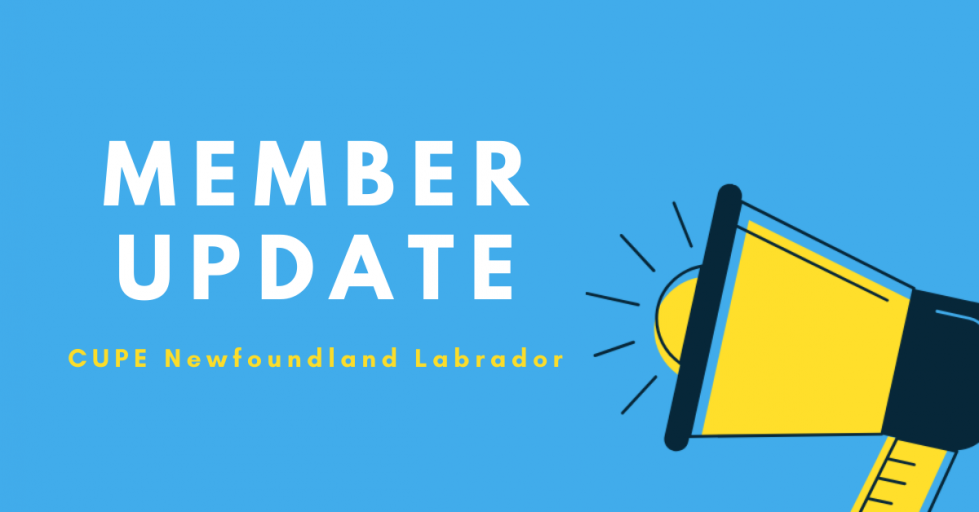Precautionary Principle
Knowledge about how COVID-19 is transmitted has yet to be fully understood. For this reason, CUPE is recommending that health care settings adopt the precautionary principle towards infection prevention and control of COVID-19. The precautionary principle means taking action to prevent infection from potentially serious viruses without having to wait for complete scientific proof that a course of action is necessary. While there is continued uncertainty about whether or not the virus is spread through the air, we must conduct ourselves as if it is. For that reason, CUPE is recommending that health care workers who are in direct contact (within 2 meters) with suspected or confirmed cases of COVID-19 request a fit-tested, seal-checked N95 respirator covering the nose and mouth.
Federal Income Support
What was in the federal government’s March 18 announcement:
- A new Emergency Care Benefit that will apply to workers who do not qualify for Employment Insurance and who are in isolation, caring for a sick family member, and/or providing childcare.
- The benefit will provide a maximum of $450 per week for up to 15 weeks.
- Parents who are unable to work because they need to provide childcare due to school closures are eligible even if they do qualify for EI.
- A new Emergency Support Benefit for workers who are facing unemployment and who do not qualify for EI.
- An increase in the Canada Child Benefit with a top-up of up to $300 per child.
- An increase in the GST/HST Credit to low income Canadians with up to an additional $300 per adult and $150 per child.
- The federal government will waive the one-week waiting requirement for EI Sickness Benefits in cases of quarantine and waive the requirement to provide a medical certificate for EI Sickness Benefits.
- The tax filing deadline is deferred until June 1 and the requirement to pay any taxes owing is deferred until August 31.
- A new wage subsidy for small businesses (including charities and not-for-profits) that will cover up to 10% of payroll to encourage them to continue to pay wages.
- A six-month, interest-free moratorium on all Canada Student Loan payments.
- Increased flexibility for mortgage lenders to allow them to defer mortgage payments for up to six months.
What does this mean for CUPE members?
1. If you are sick:
Check the provisions of your collective agreement. If your employer provides sick leave or short-term disability, that should be used first. Once any sick leave or short-term disability allowance has been exhausted, you can either apply for EI Sickness Benefits or for the new Emergency Care Benefit. Your employer may provide a top-up for EI Sickness Benefits. Provincial and federal legislation will protect your job while you are on leave.
2. If you are a caregiver:
Check the provisions of your collective agreement. Your employer may provide a caregiving leave. If your family member is critically ill, you may qualify for EI Caregiver Benefits. Otherwise, you will be eligible for the new Emergency Care Benefit. Your employer may provide a top-up for EI Caregiver Benefits. If so, you should see if your employer would be willing to extend the same top-up for the new Emergency Care Benefit. Provincial and federal legislation will protect your job while you are on leave.
3. If you are being laid off:
If you are eligible, you can apply for regular EI benefits. If you are not eligible, the government is introducing a new Emergency Support Benefit for workers who do not qualify for EI.
4. If your employer is reducing your hours of service:
Your employer may be eligible for a Work-Sharing arrangement, which could lead to you working part-time and receiving EI benefits part-time. Your employer could also qualify for the new wage subsidy for small businesses, which could help them to maintain payroll.
If you are not sure what kind of leaves or benefits your collective agreement provides, check with your local union. Your local executive will be in close communication with CUPE National staff, who can help to interpret collective agreement language and provide advice on accessing provincial and federal government programs.
Provincial Measures
The Government of Newfoundland and Labrador has declared a public health emergency. Currently there is one confirmed and two presumptive positive cases of COVID-19 in Newfoundland and Labrador.
So far, 684 people have been tested in the province, and 276 are in self-isolation.
There are now penalties for those not following directives, including self-isolation. Fines for individuals range from $500 to $5,000 and for corporations $5,000 to $50,000. Many businesses have been closed including gyms, bars and performance spaces, essentially all business that can’t incorporate physical distancing requirements. Self-isolation for all those returning from international travel is now mandatory (was voluntary).
Detailed information is available at https://www.gov.nl.ca/covid-19/

